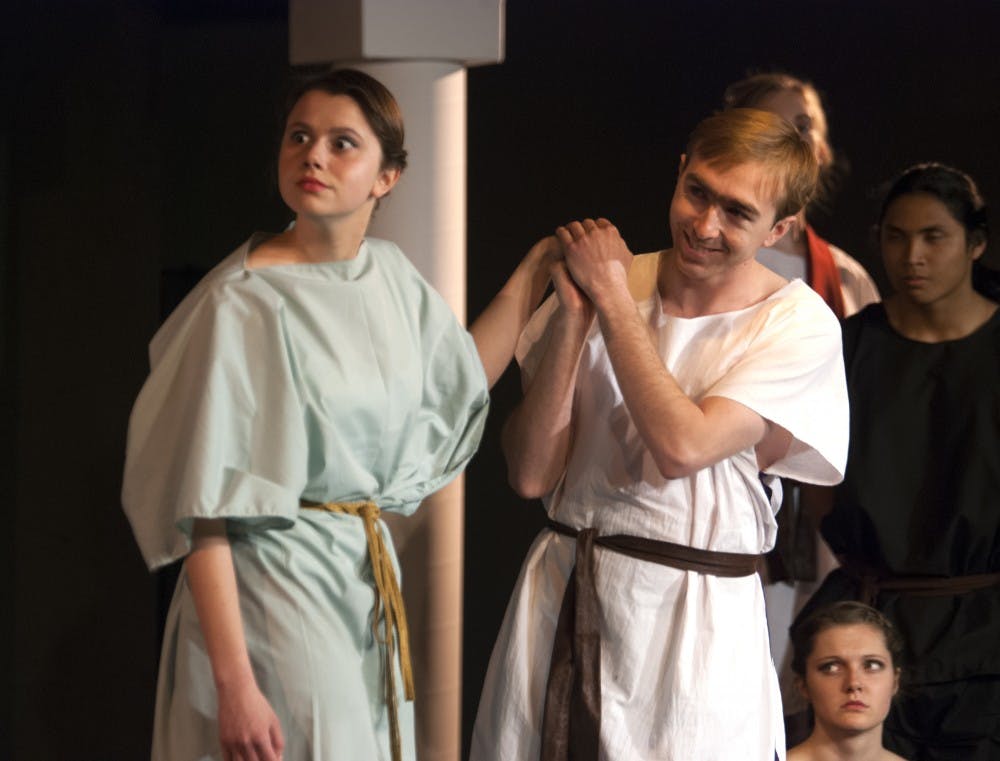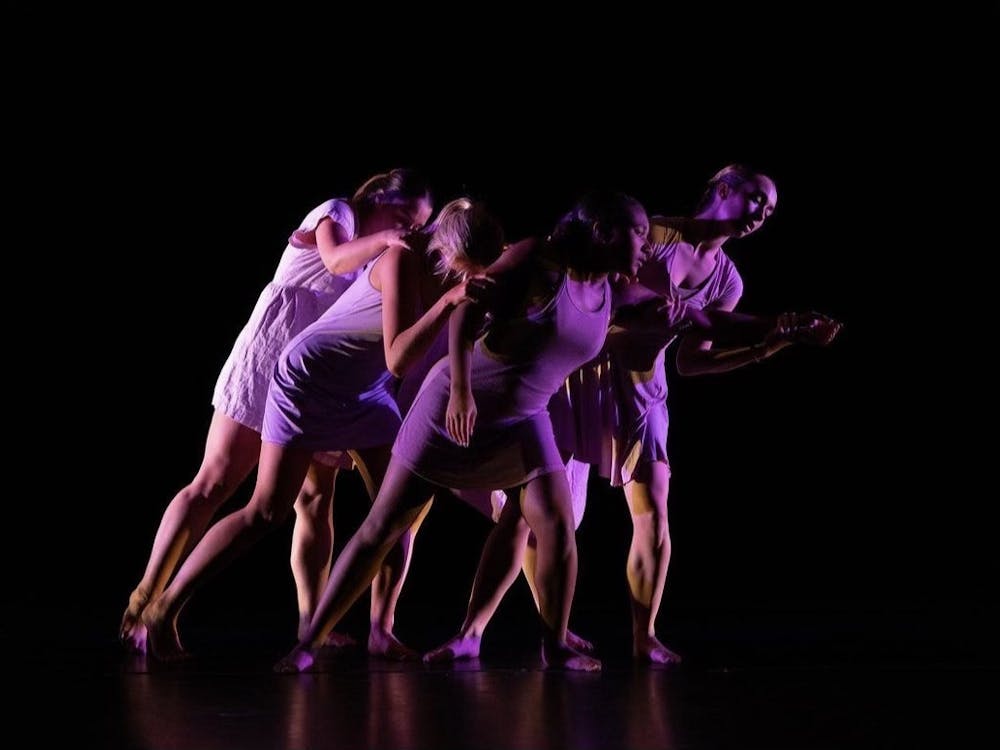Shakespeare on the Lawn, a group of actors, designers and tech crew members dedicated to performing Shakespeare’s historically vibrant and emotional works, excelled at breaking down the barriers between actor and audience in their rendition of “Titus Andronicus” this past weekend.
“A lot of people say [Titus Andronicus] is Shakespeare’s Tarantino phase,” said director Charles Eckman, a fourth-year Engineering student, referring to the play’s heavy violence and action.
One of Shakespeare’s less popular plays, “Titus Andronicus” is a statement on the volatility of human nature, justifying acts of sex, violence and madness under overarching themes of revenge, honor and deceit.
The title character, a great Roman war hero, returns home to find political turmoil has sent the Roman nobility into an uproar. The new emperor Saturnine wants to marry Titus’ only daughter, Lavinia, but is rejected by the lady herself. Meanwhile, war prisoner Queen Tamora of the Goths mourns the sacrifice of her eldest son at the hands of the Andronici. Both searching for revenge against Titus’ children, Saturnine and Tamora marry and plot their destruction. Violence commences, bringing with it much death and grief.
Eckman said he finds the violence to be one of the most interesting aspects of the show, and that his cast and technical crew portrayed the violent scenes straight from the source material.
“All of the violence in the play is textual,” he said.
The rampant use of sticky red blood and makeup was startling, but not overwhelming. It was clear that Shakespeare on the Lawn found the inclusion of gratuitous gore integral to the performance. The first and most shocking show of violence arose when Lavinia appeared to the Andronici with her tongue cut out and her hands chopped off.
Special effects makeup was impressively applied to her balled fists so as to resemble scabbed stumps. She doesn’t respond to the pleas of her family asking what happened to her. Instead, she opens her mouth and allows a stream of blood to trickle down onto the stage floor dramatically, much to the anger of the Andronici and the horror of the audience.
Fourth-year College student Robert Richards played one of a few antagonists, the vindictive Emperor Saturnine. Instead of a bulky, Goliath-esque evildoer, Richards portrays an intellectual who creates madness with conniving cleverness rather than brute physical force. Richards put a modern twist on his performance by speaking with an ironic inflection.
Eckman said there is no historical basis for the events in “Titus Andronicus,” creating uncertainty as to when the play is supposedly set. However, he said, the show serves as a “reminder of the fragility of life [and] how a different culture and time deals with justice and honor.”
An avid theatre-goer and ex-performer, there was only one aspect of this performance that I took issue with: the shoes. I’m positive the ancient Roman aristocracy did not wear Toms, Sperrys or shiny dress shoes. Sandals would have been a more appropriate and less distracting choice of footwear.
Nevertheless, the talent of the performers, designers and production crew was impressive. As Eckman said, “it’s not something that you see in the modern-day” very often.





